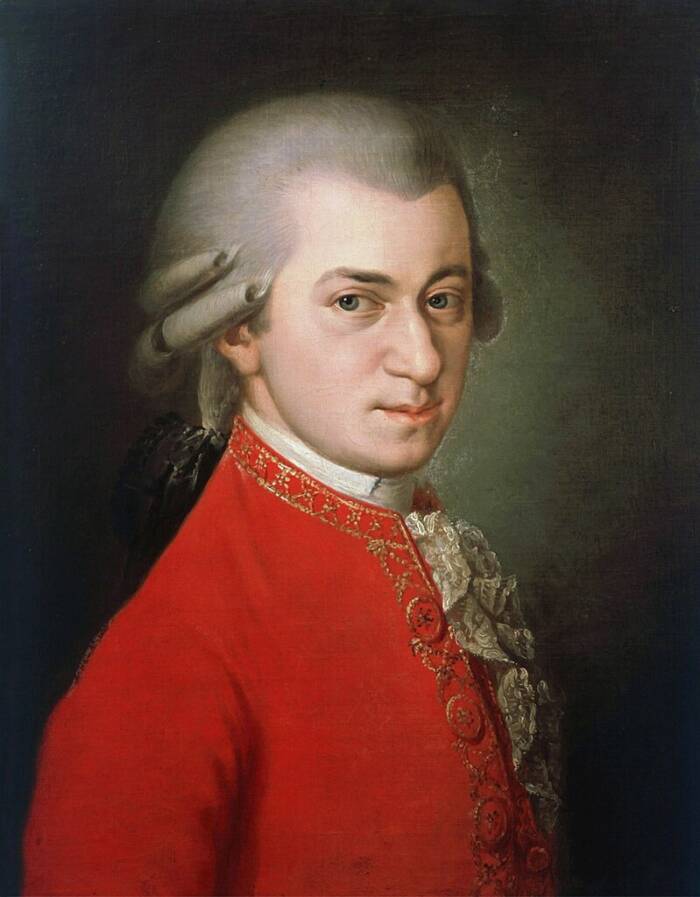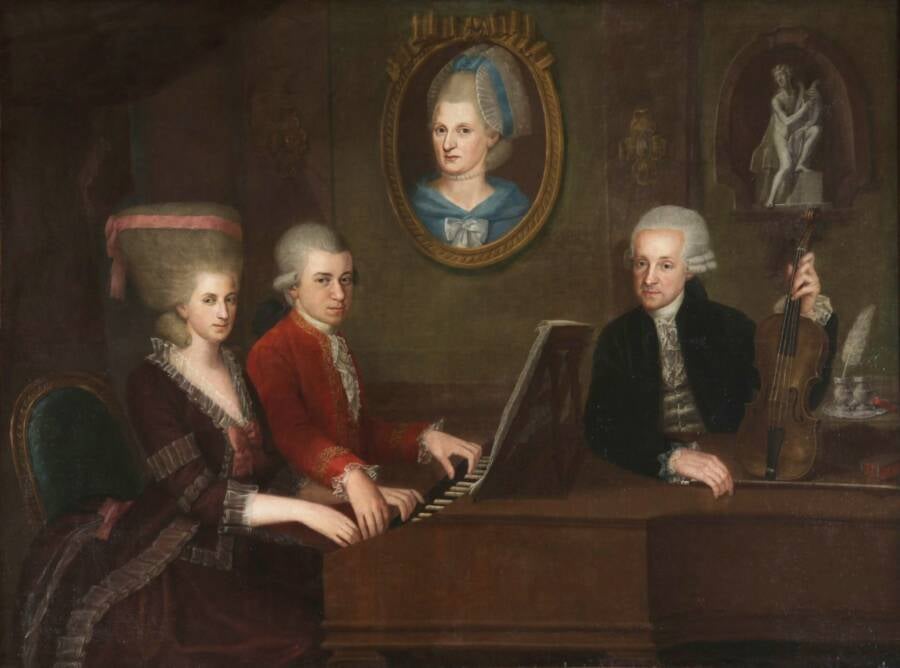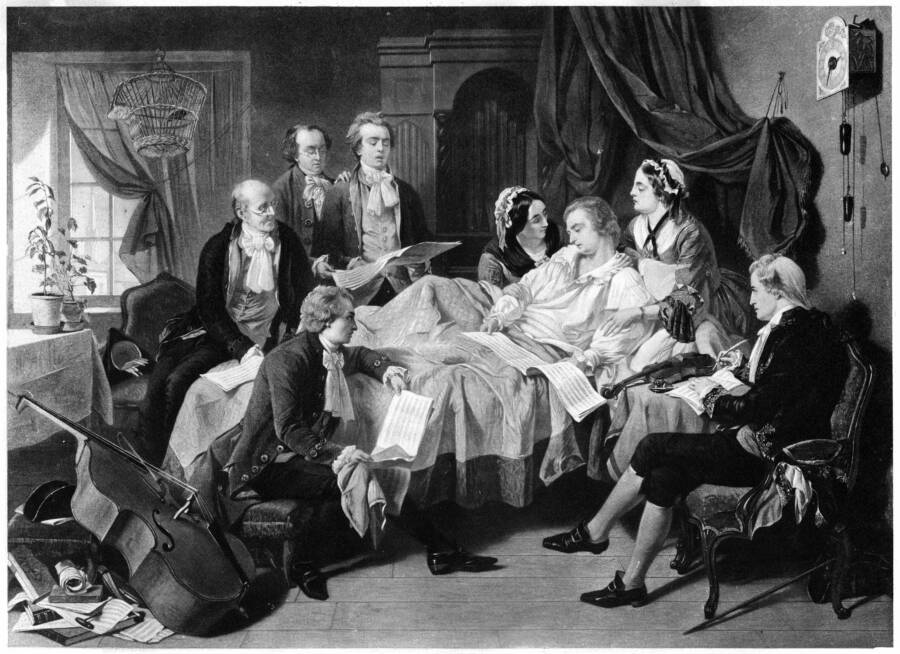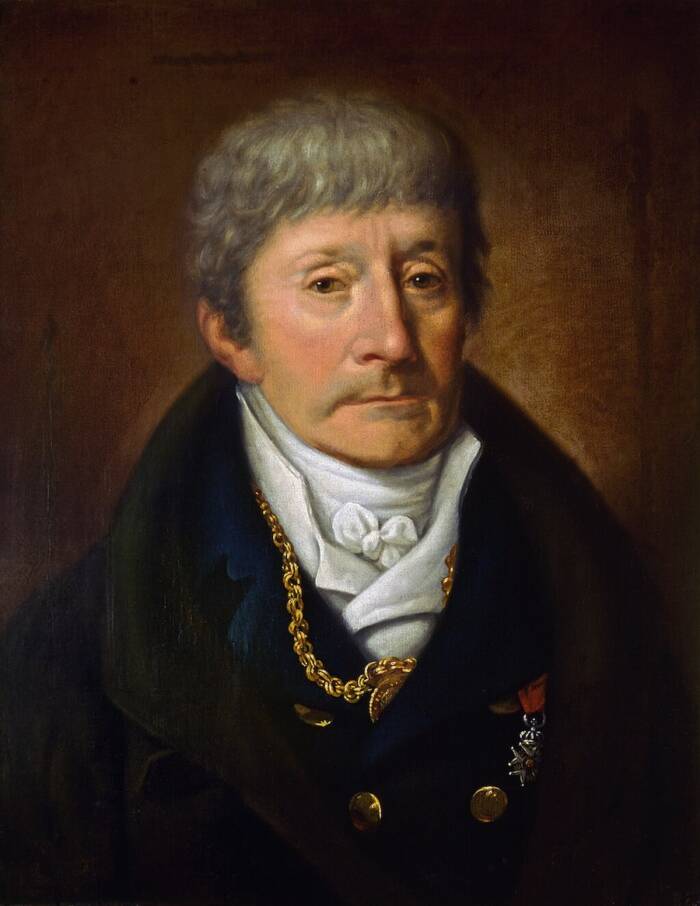Famed composer Wolfgang Amadeus Mozart was just 35 years old when he died in 1791, and the exact cause of his death has never been determined.

Public DomainWolfgang Amadeus Mozart died in 1791, and the full story of his death remains mysterious today.
As a strange illness settled upon him in 1791, the famed composer Wolfgang Amadeus Mozart made a startling declaration. “I am sure that I have been poisoned,” he fretted. “I cannot rid myself of this idea… Someone has given me Aqua Tofana and calculated the precise time of my death.” By the end of the year, the composer was dead at the age of 35. So how did Mozart die? Was he truly poisoned by an enemy, as some allege?
To date, Mozart’s exact cause of death remains a mystery. The composer, who had suffered numerous illnesses in his earlier years, started to feel especially sick in September 1791, while in Prague for the premiere of his opera, La clemenza di Tito. Mozart felt so ill that he dramatically told his wife that he must have been poisoned. However, he soon recovered.
Mozart was in good enough health that autumn to start writing his Requiem. But by November 1791, he started to suffer from a number of debilitating symptoms. Back home in Vienna, the composer complained of rashes, pain across his body, fever, and intense swelling. And though he briefly seemed to be improving in early December, Mozart died on December 5, 1791.
In the centuries since, the cause of Wolfgang Amadeus Mozart’s death has been a subject of intense speculation. Over 100 possible causes of death have been suggested, from syphilis, to strep throat, to bloodletting, to eating bad pork, and even to poisoning by Mozart’s alleged rival, Antonio Salieri.
So how did Mozart die? Here’s everything we know about the centuries-old mystery surrounding the demise of the famed composer.
The Rise Of A Musical Prodigy

Public DomainWolfgang Amadeus Mozart, center at the piano, with his family. He and his sister were both musically gifted, and their father took them on musical tours of Europe while they were still children.
Born on January 27, 1756, in Salzburg, Austria, Wolfgang Amadeus Mozart demonstrated his musical genius at an early age. The three-year-old Mozart looked on with curiosity as his father taught music to his older sister, and he was soon able to understand concepts like chords and tempos.
By four, he could play short pieces. By five, he was composing his own. Mozart quickly picked up the piano, organ, viola, and other instruments, which convinced his father that there was something divine about his son. He described Mozart as “the miracle which God let be born in Salzburg.”
Determined to share this “miracle” with the world, Mozart’s father took both of his children on musical tours of Europe. They traveled to cities like Munich, Paris, and London, delighting audiences with their performances. Mozart had the chance to meet older and more experienced composers, and he started to compose more of his own music in earnest.
As Classic FM notes, Mozart composed his first opera, Apollo et Hyacinthus, at the young age of 11. The next year, he composed another, La finta semplice, at the request of Holy Roman Emperor Joseph II.
Mozart continued to compose music for the rest of his life and would produce more than 800 compositions total. Outside of music, he also married his wife, Constanze, in 1782, with whom he’d have six children (just two would survive to adulthood) and joined the Freemasons in 1784.
By the end of the 1780s, however, Mozart’s life took a turn for the worse. He began to struggle to maintain his lavish lifestyle as he performed less, and the Austro-Turkish War meant that the aristocracy was less inclined to financially support the arts. Mozart was forced to borrow money from friends and move his family out of central Vienna, and the composer wrote drearily of how he was seized with “black thoughts.”
Despite his hardships, Mozart continued to compose. He wrote The Magic Flute, his final piano concerto in B-flat, the Clarinet Concerto in A major, and more from 1790 to 1791. But Mozart’s death was just around the corner. By the last months of 1791, he had begun to suffer from a mysterious illness.
The Strange Death Of Wolfgang Amadeus Mozart

World History Archive/Alamy Stock PhotoThe renowned composer on his deathbed. Mozart died on December 5, 1791.
While in Prague in September 1791 for the premiere of La Clemenza di Tito, Wolfgang Amadeus Mozart started to feel ill. He’d experienced numerous health issues in the past, such as smallpox, tonsillitis, bronchitis, and rheumatic fever, but this illness seemed far more serious to the composer.
It was around this time, according to PBS NewsHour, that he fretted to his wife that he’d been slipped Aqua Tofana, an Italian poison. By mid-November, however, he recovered, recanted his accusation, and got back to composing.
He may have thought he was out of the woods, but Mozart had fallen ill again by the end of the month. Bedridden and tended to by his wife and sister-in-law, the composer suffered from high fever, rashes made of tiny bumps, pain across his body, and extreme edema (swelling of his hands, feet, legs, abdomen, arms, and face). Mozart was also prone to vomiting.
By early December, the composer was still weak but in good enough spirits to have friends over. On December 4th, a number of people came to visit Mozart while he rested in bed. Gathering around his bedside, they sang parts of his unfinished Requiem. As PBS NewsHour notes, Mozart seemed well enough to sing parts of the Requiem himself, suggesting that the composer was not suffering from a shortness of breath on his final day alive.
Despite this final burst of energy, Wolfgang Amadeus Mozart’s condition worsened that night. The New York Times reports that the composer’s doctor, Thomas Closset, was summoned that evening (though Closset, at the theater when he got the call, waited until his show was over before meeting with his patient). The doctor had cold compresses put on Mozart’s head, which caused the composer to “shudder,” but did little to help his condition.
Then, an hour after midnight on December 5, 1791, Wolfgang Amadeus Mozart died at the age of 35. Soon afterward, he was buried in a common grave, since only aristocrats were buried in marked plots during that time.
Closset subsequently declared that his famous patient had died of hitziges Frieselfieber, or acute miliary fever (because Mozart’s rashes had millet-seed-like bumps). But just a week later, a newspaper in Berlin published the salacious allegation that Mozart’s death was caused by poisoning.
The true cause of the composer’s death has been debated ever since, with countless theories suggested. So how did Mozart die?
How Did Mozart Die? Inside The Many Theories

Public Domain/Wikimedia CommonsItalian composer Antonio Salieri was accused of poisoning Mozart due to the suspected rivalry between the two men, but there was no evidence to support this allegation.
To date, over 100 possible causes of Wolfgang Amadeus Mozart’s death have been suggested. The New York Times reports that the idea that Mozart was poisoned — specifically by his Italian colleague and alleged rival Antonio Salieri — has long been dismissed as nothing but gossip. Indeed, there was no evidence to support that Salieri or anyone else poisoned Mozart.
Near the end of Salieri’s life, he reportedly suffered a nervous breakdown and actually accused himself of murdering Mozart, but most believed this was only due to his severe mental illness, according to The Guardian.
So what really killed Mozart? Researchers have hypothesized that Mozart may have died from tuberculosis, syphilis, an infection from a bloodletting procedure, trichinosis from eating undercooked pork, kidney failure, scarlet fever, and, in recent years, strep throat or even a lack of sunlight.
The mystery of Mozart’s death is all the harder to solve because modern-day researchers lack his body. Since Mozart was buried in a common grave with others, his remains have never been definitively located and thoroughly studied (some believe that Mozart’s skull is held at the University Mozarteum in Salzburg, Austria, though DNA testing of the skull was inconclusive).
It seems that Mozart’s death will remain — at least for now — a mystery.
After delving into the mystery of Wolfgang Amadeus Mozart’s death, go inside the puzzling demise of Macedonian king Alexander the Great. Or, discover the murky details surrounding the death of Mexican artist Frida Kahlo.





